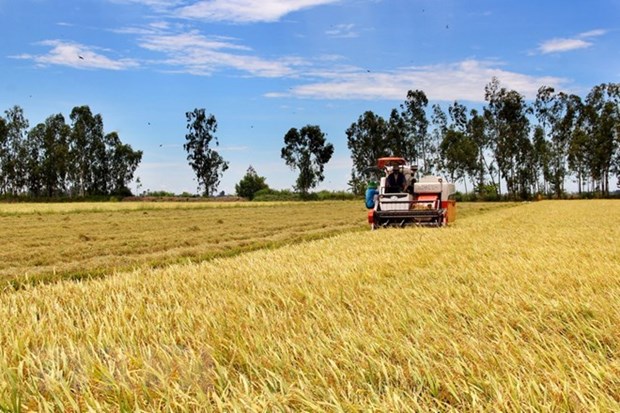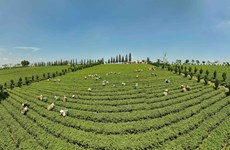Experts make proposals towards sustainable agricultural production
A variety of measures to help the Mekong Delta region better respond to climate change and achieve sustainable agricultural production were proposed at a seminar on December 20 in Long An province, part of the third Vietnam Rice Festival.
 Climate change has been posing negative impacts on the development of the Mekong Delta, including the rice sector (Photo: VNA)
Climate change has been posing negative impacts on the development of the Mekong Delta, including the rice sector (Photo: VNA)Long An (VNA) – A variety of measures to help the Mekong Delta region better respond to climate change and achieve sustainable agricultural production were proposed at a seminar on December 20 in Long An province, part of the third Vietnam Rice Festival.
At an event discussing salt intrusion and drought in the region, delegates also focused on analysing the impacts of climate change on the region’s agricultural production, especially in the rice sector.
Associate Prof. Dr. Pham Dang Tri from Can Tho University stated that climate change has been posing negative impacts on the development of the Mekong Delta. Specifically, the agricultural production output has been reduced due to sea-levels rising; a lack of alluvium, mud, and sand; and high risks of salt intrusion and floods.
Therefore, it is necessary to carry out a sustainable adaptation strategy through the combination of construction and non-construction solutions, Tri stressed.
Sharing the same view, Associate Prof. Dr. Nguyen Van Sanh, also from Can Tho University, said that farmers, enterprises, and managers should be truly ‘smart’ in production and business.
He suggested analysing market factors thoroughly, choosing suitable rice varieties, intensifying regional connectivity, improving production technologies, saving water during production, applying green technology, and reducing greenhouse gas emissions.
Scientists and enterprises also emphasised the need to choose rice varieties that are tolerant towards saline water, and replace more toxic fertilisers with organic fertilisers.
Dinh Thi Phuong Khanh, deputy head of the Long An provincial Department of Agriculture and Rural Development, affirmed that the ideas and recommendations made at the seminar will help state management offices to issue appropriate policies and mechanisms to develop agriculture sustainably, thus helping enterprises and farmers define their direction in agricultural production as adaptive to climate change. –VNA












